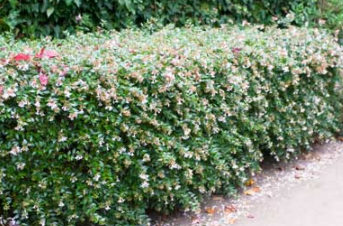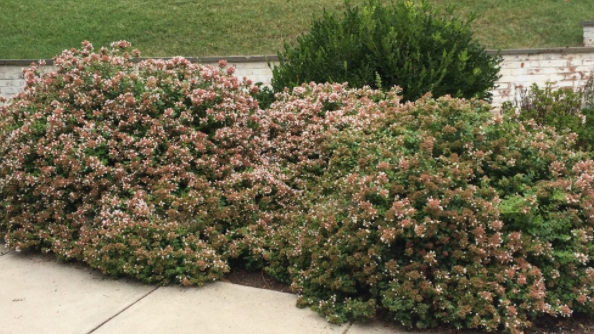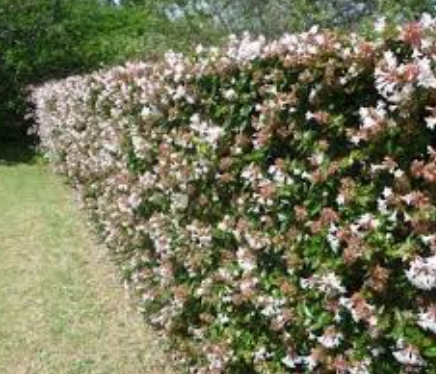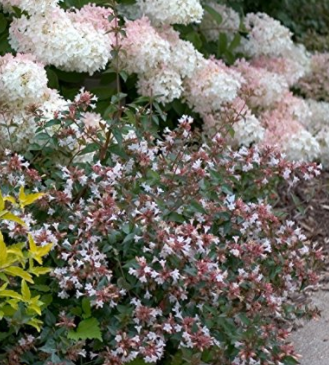l have little information about adorable- abelia @ctrl-alt-nwo.
Not only are they renowned for their beauty and good looks all year round, but also for their reliable performance in gardens around South Africa. These carefree shrubs are perfect for eco-conscious gardeners, as they suffer from no pests or diseases worth mentioning, or spraying for. They will grow in sun or semi-shade, and being low maintenance, perfect for our rushed modern lifestyles too. ..
While many of us delight in the cheery bursts of seasonal colour perennials and annuals add to a planting bed, all good gardeners know that a well-designed garden relies on evergreen shrubs to define its “bones” and give it structure. It is around this permanent structure that we build the rest of our gardens, so selecting the right shrub for the job is most important.
Abelia 'Sunrise'Abelia 'Sunrise'Abelias are among those old fashioned shrubs that modern gardeners simply can’t do without, because they are available in all sizes, from petite to large. There is an ideal one for your size garden - even if you only have a small balcony, it can boast a dwarf potted Abelia!


Smaller gardens need smaller shrubs, and it can be a challenge to find shrubs that remain small without the need for ruthless pruning. Plant breeders recognised this need and were delighted when they persuaded Abelia to produce more petite offspring. These new and exciting cultivars are genetic dwarfs and simply do not grow as large as their parents. This breakthrough led to a wonderful selection of these adorable babies, with the same graceful form as their parents, and a wonderful selection of leaf colours, including lemon, gold, cream or even pink variegations, not forgetting the profusion of tiny bell-shaped flowers Abelia is loved for.
Abelia is a large family of plants belonging to the beautiful honeysuckle family and there are both evergreen and deciduous species. They are native to eastern Asia, from Japan to the Himalayas, as well as Mexico; the species from warm climates are evergreen, and those from colder climates are deciduous.

